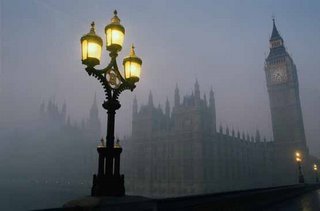in a series of interesting and somewhat humorous comments on my last post, an anonymous reader brought up the topic of work hours and the RRC:
"You signed up for this no? Good thing you have the RRC to wipe your nose (and your butt). God forbid you might actually stay up all night. Jeez you are going for a post-call hike. You really think that's what happened before the RRC held your hand? No you were a DOCTOR and worked post call. Tell me, what do you think is going to happen when you get to the REAL WORLD, you are on call all night and then spend the whole next day working? The RRC won't be holding your hand then. ... The present work hour rules have turned the present crop of residents into wussies. I know this from experience. Medicine is not shift work. You don't walk away from the patient when the bell rings. You don't know what I am talking about. In 1 and 3/4 yrs you will...."
for those of you who don't know, RRC stands for the Residency Review Committee. it is the part of the ACGME (American Council of Graduate Medical Education) that oversees residency programs. every few years, all accredited residency programs have a site review to make sure that they are up to standards.
recently, the ACGME instituted restrictions that limit residents to working 80 hours per week, averaged over 4 weeks, no more than 30 hours in a row, no less than 10 hours between shifts and at least 4 days off in a month. these rules echo the Bell Commission reforms that have been in place in New York since the late 1980's after a patient died (Bertrand Bell's daughter, Katie) due to resident fatigue.
anonymous' opinion, it would seem, is that the work hour restrictions have made an entire generation of doctors into "wussies". i'm curious what opinions people have about this, both medical and non-medical readers. does it positively or negatively affect patient care in your experience? if you are a resident currently, is your program in compliance? what are non-US training programs doing to address the issue?

